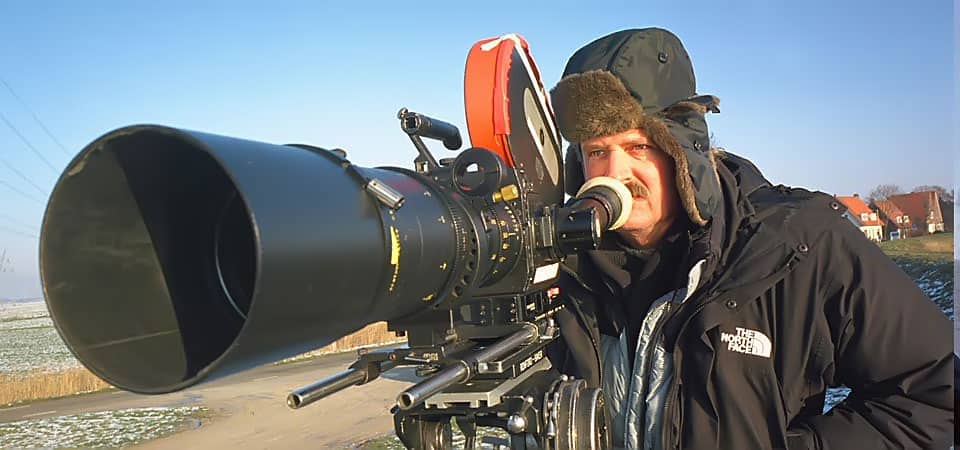director – Pieter-Rim de Kroon

“The translation of the idea into film kept director Pieter-Rim de Kroon busy full-time for nearly a year and a half. In practice, the idea behaves quite differently in the film world. Suddenly, you have to deal with the ‘restrictive’ laws of cinema. What seems easy to conceive often doesn’t work at all in practice, and while filming and searching, other solutions presented themselves. What quickly became clear is that film is emotion, not logic.
The ‘Ten Commandments of Dutch Light,’ written by artist Jan Andriesse, played an important role for Pieter-Rim in relearning how to see. Calmness, calmness, and more calmness. No messing around with fast edits and shaky camera movements. Back to basics. Just look.”
It’s not just about beautiful light. ‘Ugly’ light is also functional. Gray light on the coast at Scheveningen, dead light above the clay soils in Eastern Groningen on a drizzly day, the dull light before a rainstorm in the Rotterdam harbor. And sometimes, there’s almost no light at all (paintings in storage, in the room where the film begins and ends). It’s precisely about the contrasts and the constant changes in light—because that’s what makes Dutch light special.
Pieter-Rim de Kroon graduated from the Netherlands Film Academy in Amsterdam (1981), majoring in “Lighting-Camera” and documentary direction. From 1980 to 1985, he worked as a cameraman/director at Polygoon-Profilti, known at the time for the Cinema Newsreel, where he gained extensive international experience over five years. In addition to around 250 short reports on 35mm film, he also worked on a series of short documentaries about development cooperation. He also participated in seminars at the Academy for Motion Picture Arts and Sciences in Hollywood, the American Film Institute, and The British Kinematographic Sound and Television Society. From 1985 to 1995, he worked at Toonder Studios as a director/cameraman, directing dozens of international corporate films, commercials, Postbus 51 spots, documentaries, and informational films. From 1992, he was the Creative Director of the live-action film department.
From 1995 to 2010, he was the founder of De Kroon, Wissenraet & Associés B.V., a company focused on multimedia and audiovisual projects. In 2012, he founded Windmill Film.
Over the years, De Kroon has served on film juries and has given workshops, masterclasses, and lectures at international film festivals and art institutions.
De Kroon’s latest film, Silence of the Tides, was released at IDFA 2020 and received a Special Jury Mention. The film was also selected for the IDFA Extended program. At the Natourale Nature & Environment Festival in Wiesbaden, Germany, Silence of the Tides won the award for Best Feature Film. At GZDOC in Guangzhou, China, Pieter-Rim won the award for Best Director. Silence of the Tides is a film that breathes in and out with the tides of the Wadden Sea, exploring the fragile relationship between humans and nature. Silence of the Tides was released in theaters in the Netherlands and Germany in 2021. Currently, Pieter-Rim is developing the film Cloud Busting, a cinematic tribute to clouds—a film for the big screen about the relationship between clouds and climate change. In his films, De Kroon strives to elevate the phenomenon of dry observation to a higher level each time.”
